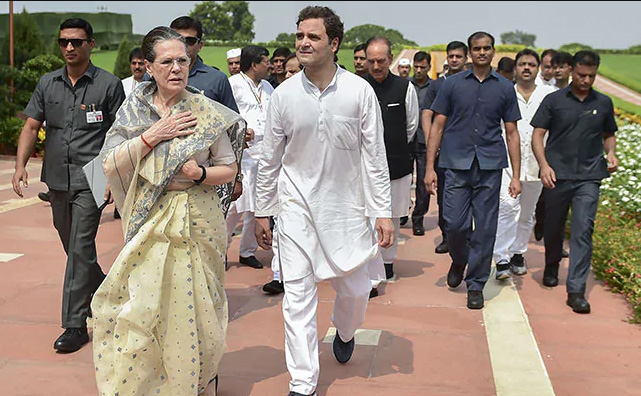New Delhi: The family members of former prime ministers will not be guarded by the elite Special Protection Group (SPG) commandos, as per the amendments approved the Union Cabinet to the SPG Act, officials said Friday.
The move comes days after the government withdrew the SPG protection given to Congress president Sonia Gandhi and her children, Rahul Gandhi and Priyanka Gandhi Vadra, almost after three decades.
The proposed legislation – the Special Protection Group (Amendment) Bill – has been listed in the government’s business for next week for introduction in the Lok Sabha, Union Minister of State for Parliamentary Affairs Arjun Ram Meghwal announced in the lower house Friday.
As per the SPG Act, the force will provide security to the prime minister and the members of his immediate family, and any former prime minister or to the members of his immediate family for a period of one year from the date on which the incumbent ceases to hold office, and beyond one year based on the level of threat.
According to the proposed amendment, family members of the former prime ministers would not be entitled to the coveted SPG security cover, officials said. The proposed amendment in the SPG Act was approved Wednesday by the Union Cabinet, an official said.
The decision to withdraw the SPG cover given to the family of former Prime Minister Rajiv Gandhi, who was assassinated May 21, 1991 by LTTE terrorists was taken after a detailed security assessment early this month.
The Gandhis are now without SPG protection after 28 years. They were included in the VVIP security list following an amendment in September 1991 in the SPG Act of 1988.
Prime Minister Narendra Modi is now the only person to be protected by the about-4,000-personnel-strong SPG.
Under the rules, SPG protectees are provided with guards, hi-tech vehicles, jammers and an ambulance in their cavalcade.
The Gandhis are now guarded by the ‘Z-plus’ security of the Central Reserve Police Force (CRPF). Under the ‘Z-plus’ security, they are being protected by CRPF commandos in close proximity, besides guards at their homes and wherever they travel in the country.
PTI
